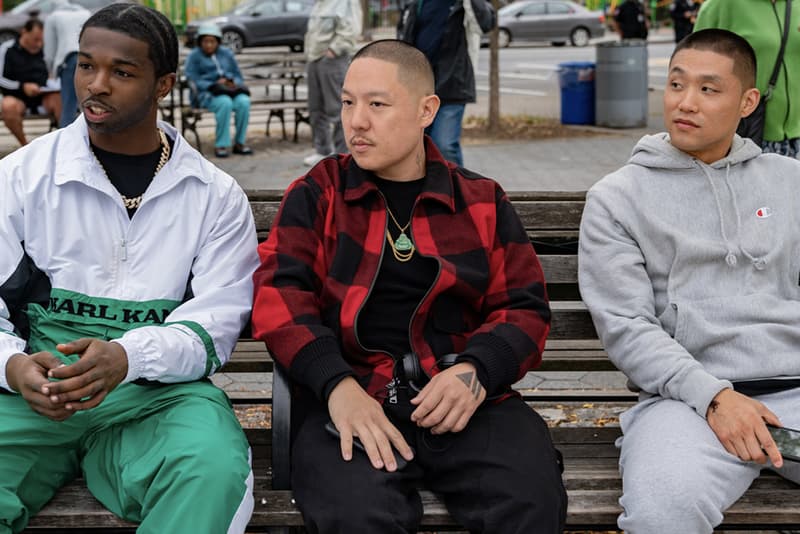 Eddie Huang isn’t afraid of saying what he truly thinks, and that’s been his guiding principle throughout most of his life. The author, restaurateur, former-attorney and comedian can now say he’s a film director. But he doesn’t really care for labels and wants people to know they shouldn’t either. His new movie Boogie is a testament to that ethos, directly confronting issues of race in America.
Eddie Huang isn’t afraid of saying what he truly thinks, and that’s been his guiding principle throughout most of his life. The author, restaurateur, former-attorney and comedian can now say he’s a film director. But he doesn’t really care for labels and wants people to know they shouldn’t either. His new movie Boogie is a testament to that ethos, directly confronting issues of race in America.
The story centers around Alfred “Boogie” Chin, a high school basketball prodigy with big dreams of making it to the NBA. Boogie is determined to play his way to the top, with the weight of familial expectations on his shoulders — which he describes as “5,000 years of Chinese history.”
Boogie is focused, passionate and brazenly inappropriate, an honest caricature of a younger Huang. At one point, Boogie vents to his girlfriend Eleanor that she doesn’t understand his struggle with race and identity. “Chinese people could be so much more if this country didn’t reduce us to Beef and Broccoli,” he says — a hallmark Chinese-American dish adapted by early immigrants to cater to the American palate. “I feel like a piece of beef surrounded by sprouted greens and MSG,” he says. Eleanor then reminds him about what she has to go through as a Black Caribbean woman living in New York. The dialogue is simple yet addresses a complex issue.
Boogie paints a wistful portrait of domestic struggle, race and adolescence: a snazzy coming-of-age film set in New York and largely informed by Huang’s personal life. The film also stars the late Pop Smoke, who plays Monk, Alfred’s archrival. HYPEBEAST sits down with Eddie Huang to find out more.
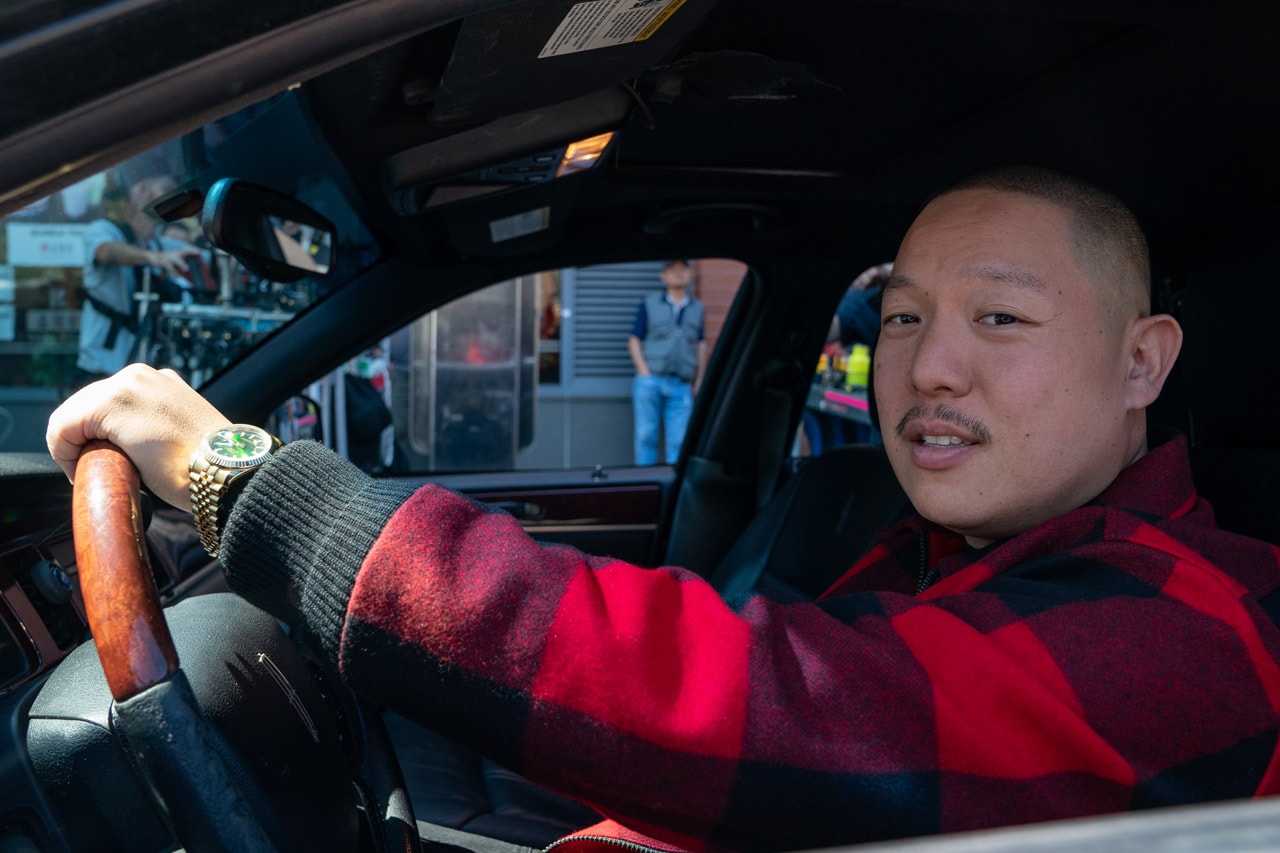
HYPEBEAST: Does it feel weird to kind of see yourself being played by someone else on the screen?
Eddie Huang: No, because my life is pretty unique, and I always felt like it was a story worth telling, especially the way that I approached coming-of-age in America — the way I approached identity. I did a lot of things that other Asian kids don’t do in America, at least in my generation.
Your book Fresh Off the Boat is really inspiring in that sense.
That means a lot. That’s why I do it. And that’s why I made Boogie. HYPEBEAST is a very important outlet to me, because it’s one outlet that has the kids that I’d like to speak to. It’s for the people that read HYPEBEAST, you know, and so I make things for kids.
It’s not like I’m making this movie for young adults, and I’m not dumbing it down at all. I like talking to young people, because there’s still so much potential and promise. There’s so many decisions left to make. I think that in your teens, like 15, 16, 17, man, that’s the best time to see movies like this and open yourself up to new experiences and hear and see as much as you can. A 39-year-old guy like me, your life’s already on a track, you’re halfway done. So f**k those people. I make it for young people, because I want to kind of pass on the things that I thought about, did, and felt.
Hopefully it gets kids to question and be curious about their own lives and emotions. More than even repping for Asian-Americans or, like, fighting for solidarity between Latino, Black, Asian and gay communities, it can be all these things. I care about solidarity and representation, but more than that, I really want people to have the confidence to be in their own bodies, be in their emotions and be honest. A lot of times we don’t do things because we’re worried what somebody else is going to think. I wanted this character to be a character that’s not likable.
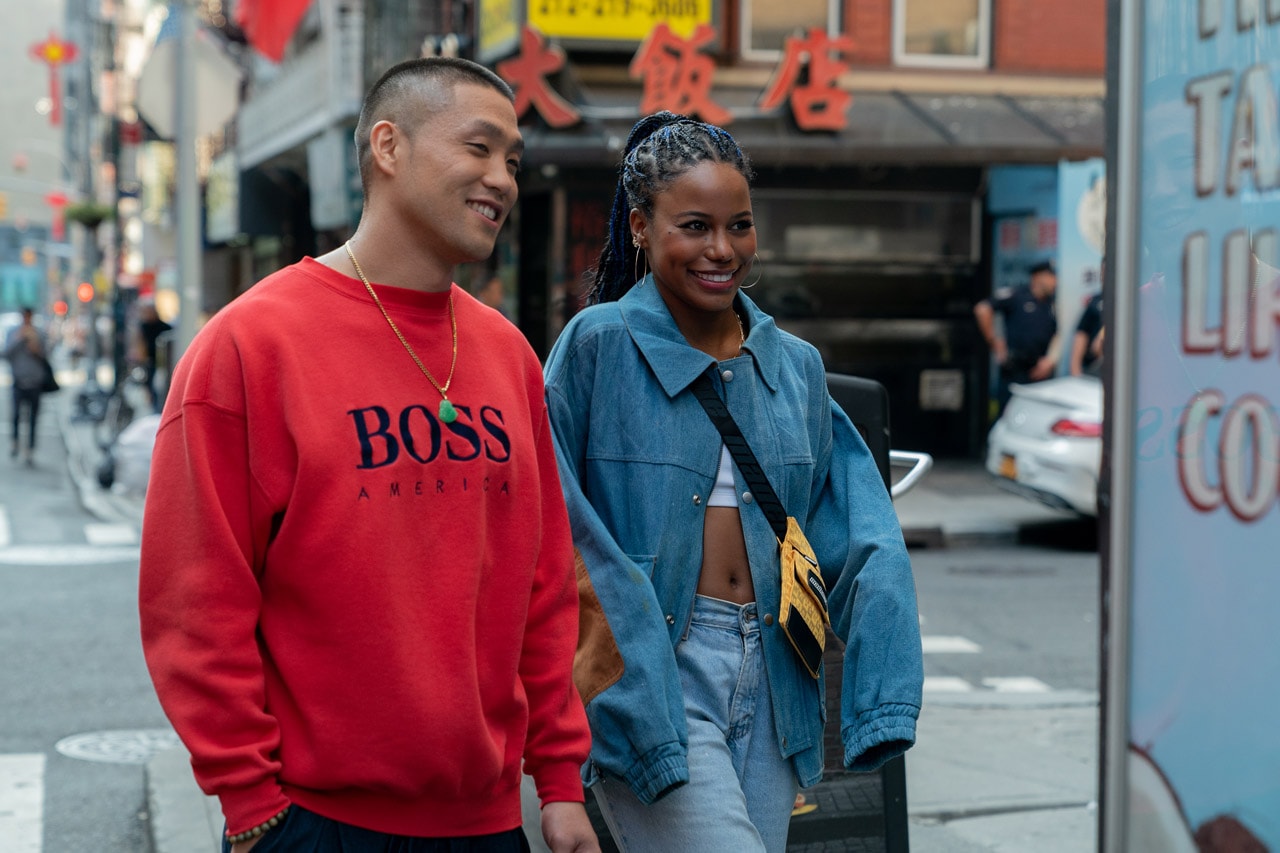
Alfred “Boogie” Chin starts off a bit crude in the movie.
He does a lot of things that are embarrassing. Like when he said “you got a pretty vagina.” I would never talk to a girl like that, but I saw my friend do it. Like, “the f**k are you doing, bro? Why would you say that to this girl?” I was like, you’re just an awkward Asian dude that doesn’t know how to talk to women because you’ve been emasculated your whole life. You’ve been pushed down so you’re like, “I’m gonna be extra aggro,” so I used that for Boogie.
A lot of the things Boogie does aren’t things that I did, but there are things I saw other people do, but I wanted us to sit in those emotions, feelings and failures. I remember seeing other kids in school make fun of my friends and be like, “tell me how my d**k taste?” if they got with their girl.
I wanted to make a film that has a challenging character who is flawed do things and say things that are f**ked up. That’s the reality of youth. You’re making mistakes. You’re trying to figure it out. I think more than anything, the message of it is to believe in yourself, in all your flaws, in all your imperfections and that if you’re honest with yourself and you really feel your way through, you’ll do the right things and make the right choices. I think the whole movie is about him struggling with his parents’ expectations and who he wants to be.
We live in a time where people are expected to be perfect.
The kids in the movie talk like high school kids. They make mistakes, like high school kids. They’re misogynistic. They’re racists. They’re f**ked. But I remember all my friends being this way. When I talk to younger kids now, they’re more aware, more PC and more woke, but they still make insane choices.
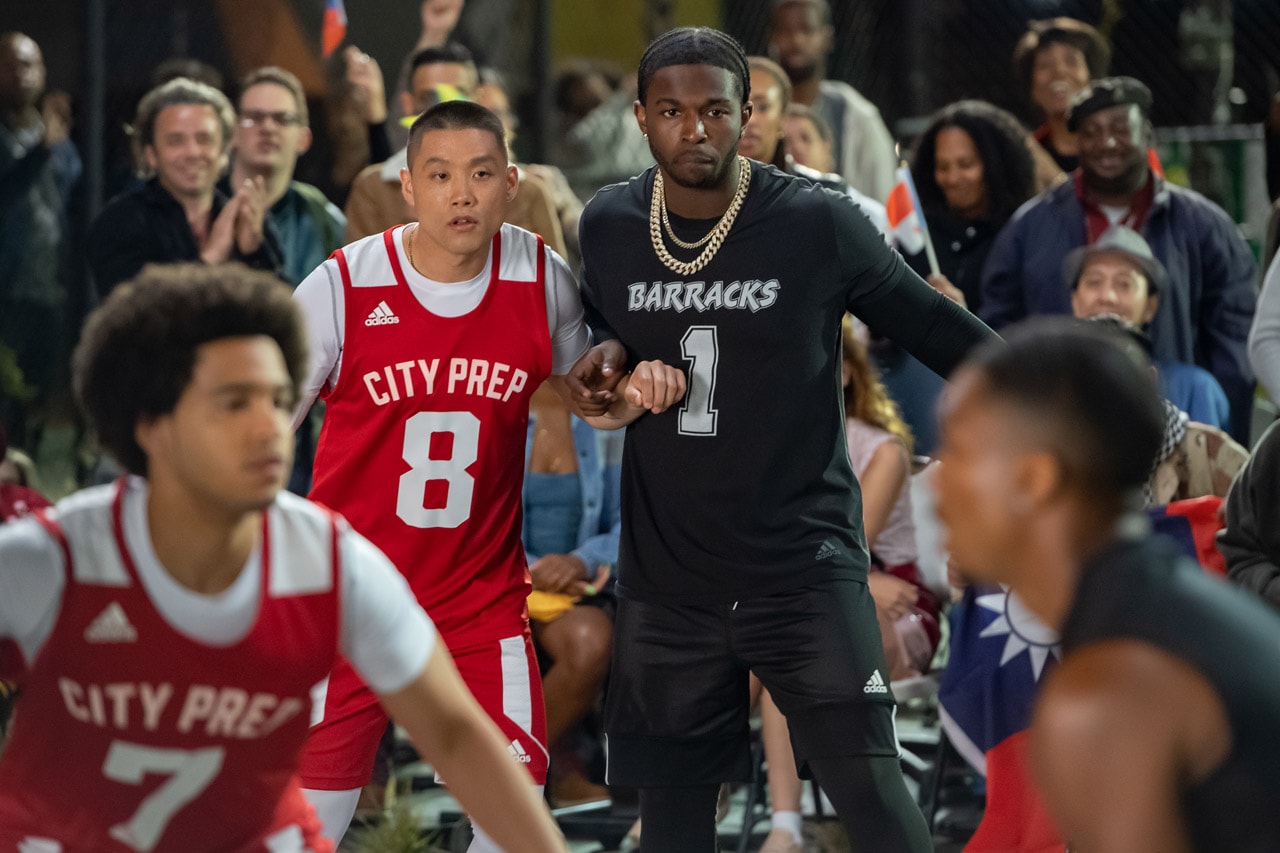
David Giesbrecht/Focus Features
How do you feel about PC and cancel culture, and what would you say to kids today who are experimenting and still trying to figure it out?
I’ll give you a big philosophical answer to this. John Locke’s social contract theory: we give up our absolute unlimited freedom for protection, safety and the guarantee that others will not encroach on our absolute freedom unless it’s necessary. That’s a social contract we have. As it pertains to cancel culture, if you’re just being insane and hurtful, I understand why they’re canceled. I think that “me too” and canceling have done a lot more good than bad. So I’m not like an “anti-cancel culture” person, but I think that we all have to read between the lines and stop looking at ourselves in terms of labels or definitions.
I think everyone needs to just be in their own hearts and treat each other as you would like to be treated. I think it’s so simple to understand. I don’t follow a lot of rules. I’m late to a lot of stuff. I argue a lot, but I’m honest. I do think being honest is important, and I do try to put myself in other people’s shoes. Like if I disagree, I do really try to think about how the other person’s feeling and then come back to it.
How does Alfred “Boogie” Chin play into this?
One of my favorite scenes in the film was the Beef and Broccoli scene where Boogie is really frustrated with representing for Asian-Americans. He’s frustrated by having to uphold 5,000 years of Chinese culture. He’s like, “this is just so hard, you still don’t get it Eleanor.” And it’s like, “Dummy, did you think about what she goes through as a Black Caribbean woman in New York? Coming-of-age at this city prep school in AP English? Do you think about that?” Obviously Boogie didn’t cause he’s a stupid high-school kid. But I liked that.
He was very in himself, and that’s something where I remember, not in this context, but moments in my relationships with women where they’re like, “look, man, I understand your struggle, but talk to me.” And I’m like, “no, you don’t. You don’t get it.” And it’s like, “No, I do. If you talk about it, and also, it’s going to hurt a lot less if you don’t think you’re the only one going through this.” And you know what, respect. I think that’s important for people to see. We’re all going through something. When it’s tough, reach out for help, talk to people and don’t be afraid to try to connect the dots. But somebody is always going through something that you can relate to.
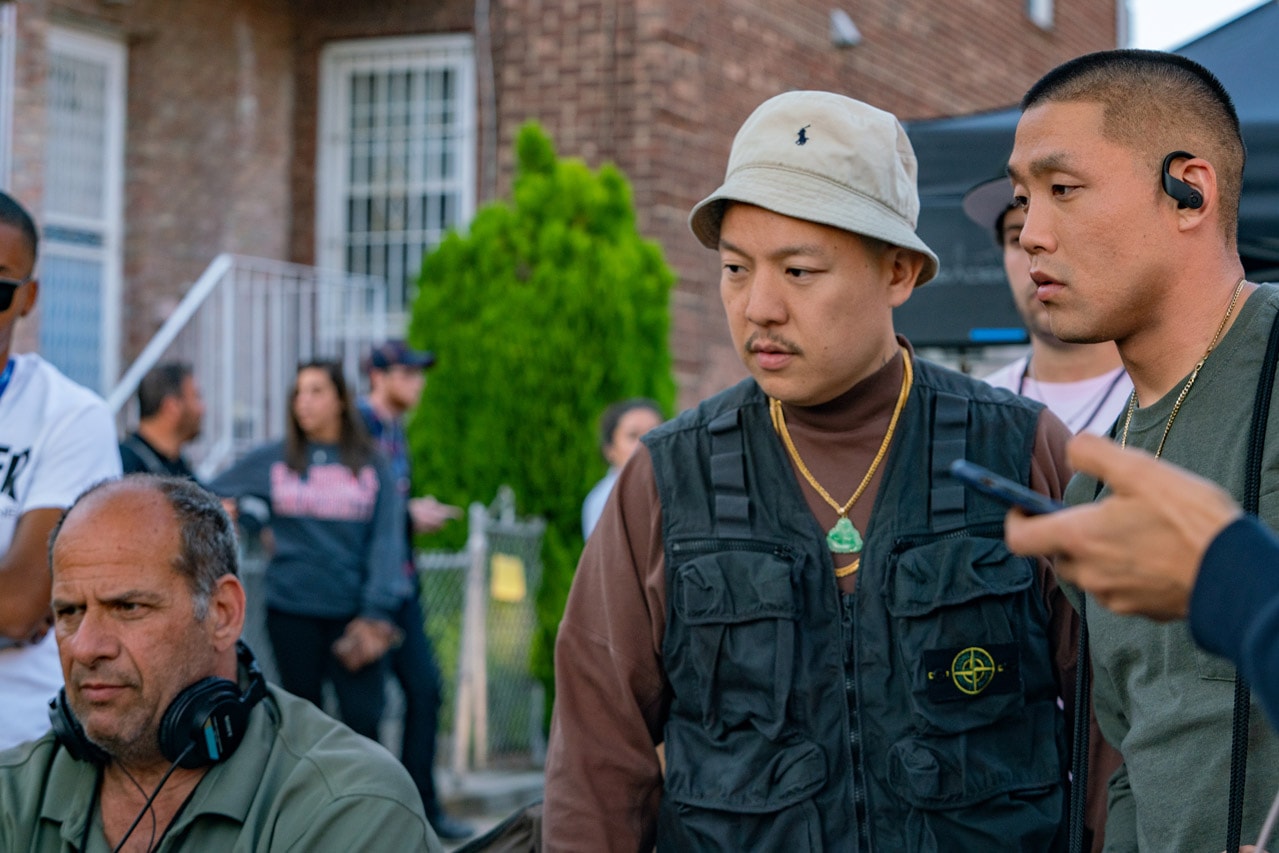
During the Beef and Broccoli scene, there’s a voice in the background. Who was that?
“Motherf**kers talkin’ ‘bout Beef and Broccoli…” That’s Crimefaces. I love that. I actually wanted that louder, and we had to horse trade with Focus about it. They said it’s distracting, but I like goofy s**t. I remember N.O.R.E. on a DJ Clue mixtape back in the day was like, “Yo, yo keep that in. Keep that. Keep that in. The mistakes. Mistakes are what make things perfect.”
It’s cool you see a lot of representation in this film, a mix of both Black and Asian culture.
Yeah. It’s like everyone talking in the news likes to bifurcate all the groups; “Latinos feel this way. Black people feel this way. Asians feel this way. They do this, and they do that.” And I’m like, yo man there’s a lot more that’s similar about us than there’s different.
We have a lot of struggles that we can be allies about. That’s where I think the film is quite special in this moment. And I don’t want to hit it on the nose and give you a standard answer about the rise of Asian violence because the answer’s very simple: stop hitting Asian people. There’s no other opinion to have. Stop hitting Asian people.
But the secondary part of it is that we have to reach out to other communities and participate in America in a larger sense, because we are still very exotic to people. We still seem very alien. I think it’s because our parents’ generation did not engage America. They didn’t really engage this experiment of being part of the American fabric. It was like, “alright, we’re going to live in our neighborhoods.” We’re going to go make money, come back to our neighborhood and stick with our people.” I understand it as a self-defense thing, just as I understand Beef and Broccoli.
But the time has ended where we have to cook Beef and Broccoli. You want to make Beef and Broccoli? You want to eat it? Do it, please be my guest. It’s delicious. But we can also do other stuff. We can also cook our authentic food. We can take people to dim sum. In terms of our communities, we don’t have to hide in Chinatown. We don’t have to bow our heads. We don’t have to look down on our feet when we walk around. That’s what that scene means.
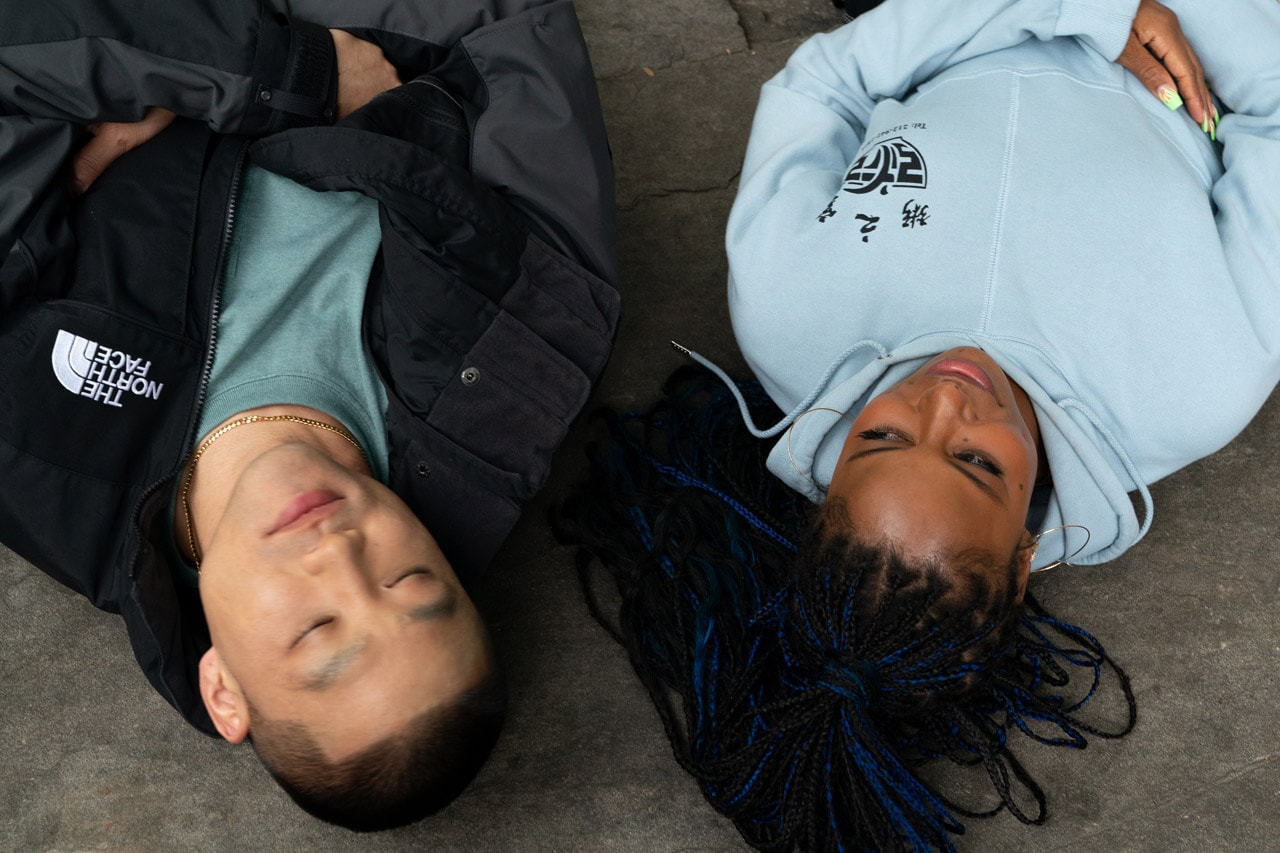
How do you see this cultural shift of representation progressing and how do you feel about it?
I think it’s getting a lot better. I think the women are very interesting right now. Like, Softest Hard DJ. She’s just cool. She doing shoots with Kali Uchis and stuff. It’s not about being Asian. You’re just a cool Asian girl. I love Edison Chen. I always thought Edison is like an interesting guy. He’s one of the few Asian idols that I get along with. Me and Ed, we’ll just get a coffee and we’ll get lunch and chop it up. I f**k with Ed because he’s just confident in his own skin. He loves being Asian, but he’s also like f**ks with A$AP. Edison touches all kinds of different cultures. He’s not intimidated to walk through the wall. Same with Dr. Woo. The three of us are really close friends and we stick together. Like Asa Akira, the way she represents is cool. David Cho. Even David Chang.
David Chang may be at a more institutional level than all of us, but he’s a bull in a China shop in that institutional world. And it’s cool. I don’t always agree with Dave. I think Dave sometimes comes around to things a little, like… I’m like, “it took Dave that long to come around to this?” But what I like about Dave is he’s honest. He tells you exactly what he thinks. Even if it’s wrong. Even if it’s off, and then he apologizes when he knows he’s wrong. And I think that takes a very big man.
I like Justin Chon, the director of Gook. I think he’s a really important storyteller. Even that girl Esther that’s got PRIX. She’s super interesting. Esther is a psycho; she’s like posting photos of herself with a gun. I think it’s just about doing you and it’s not purposely being sensational or weird, but I think that the art that comes out of the frustration of oppression and difference is my favorite. And that’s just my taste.
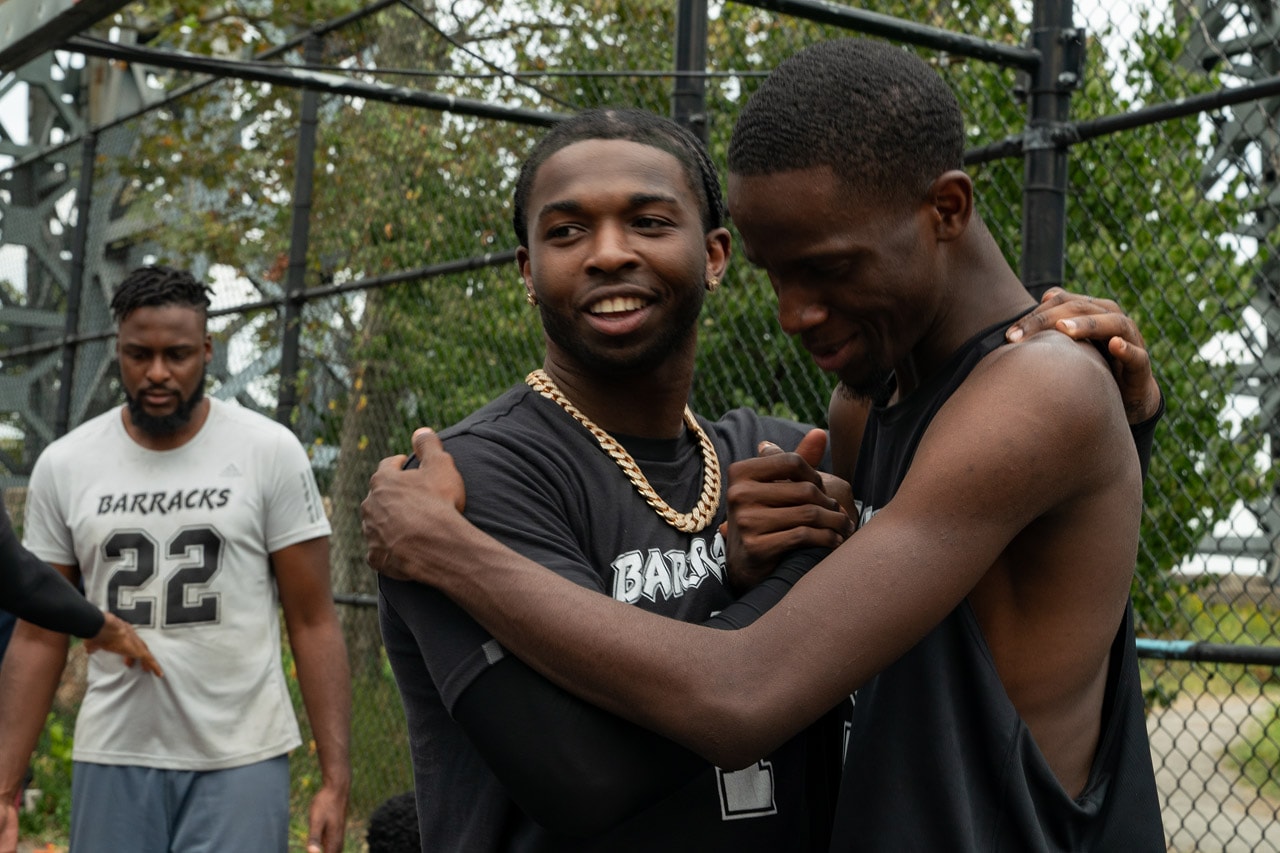
What was it like working with Pop Smoke and what’s one thing you will remember him by?
While we’re talking on the subject of just being an individual and doing you and all that, we all know who Pop is. And we’re very familiar with his music, his videos and his persona, but Pop also is a guy that didn’t want to be understood in a silo like that. There was one day on the set. He turned to me, he goes, “Yo, Big Dawg. You know, I was a good kid.” And I was like, “you still a good kid Pop.” And he was like, “I used to get good grades.” And I thought that was really… cute, for lack of a better term. I was like, man, Pop really cares what people think of him, what I think of him.
He wanted people to know there’s another side of the dude. He’s well-rounded. I just love Pop because there is the image of him, and there’s what other people gravitate towards. It’s very interesting when you put yourself out, when you put your work into the world and you see what everybody else wants you to be, and we do know what everyone wants Pop to be. He’s the King of New York, the bad guy. But on the other side, he’s like somebody’s brother, somebody’s baby. He was a really romantic guy. He was always talking to me about girls and stuff and not even in a like, “yo, you know, I smashed that up.” Sometimes he talked about that, but he also liked writing love songs.
I remember, after we finished the movie, I got two of the songs he was working on. One of them was “What You Know Bout Love.” I was like, “wait, this is what Pop wants to put out!?” And, you know, I was like, “damn, he wanted to do love songs.” That was really interesting to me and my ignorant ass was just like, “yo, man, I just need Woo 2.” You know what I mean? Just give me more of that, that bad man s**t. But you see what he did with Shoot for the Stars, Aim for the Moon, you see a well-rounded person. He’s a whole human and like, love is part of that. Those are the things that I remember about Pop. You probably wouldn’t expect, but you should because no one is just this flat, fragmented version. Sometimes you like what everybody else likes about you. So you keep doing it and you become more and more a caricature of yourself.
What’s next for you?
I got the animated show Chinos on HBO. Another show called Chinatown Confidential — it’s about a downtown female DJ who ends up at the center of a murder in a Chinese restaurant and it’s like, “How the f**k do I get out of this?” So that’s going to be pretty cool. I hope it’s something like the Big Lebowski. I got another script I’m taking out called Tuna Melt. So those are the three things I’m working on.

No comments:
Post a Comment